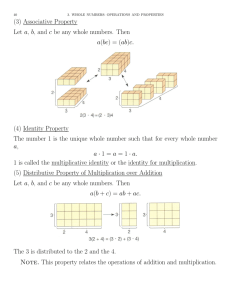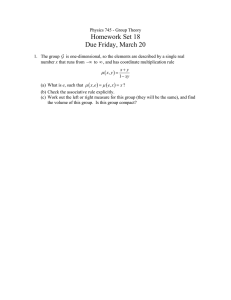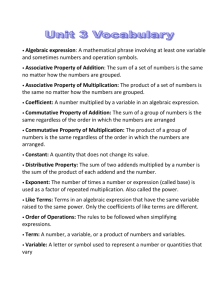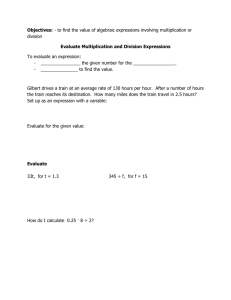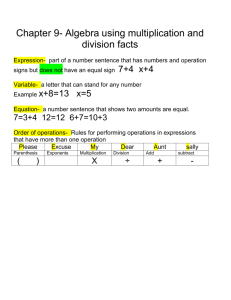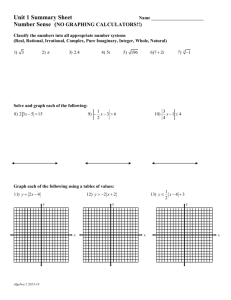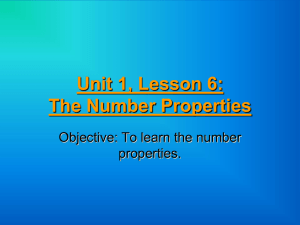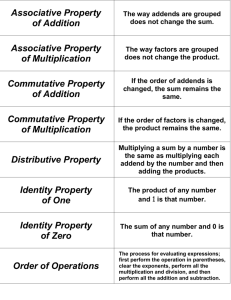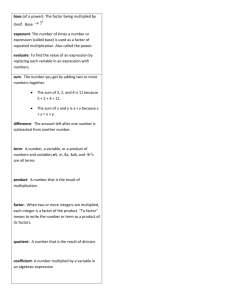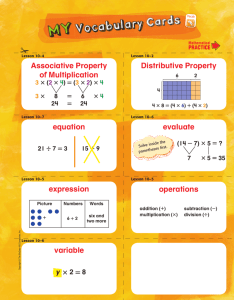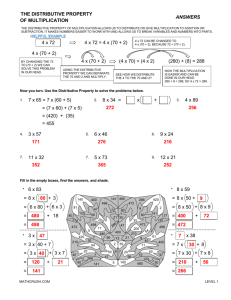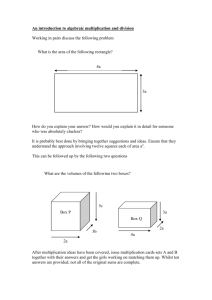Name - Avon School District
advertisement
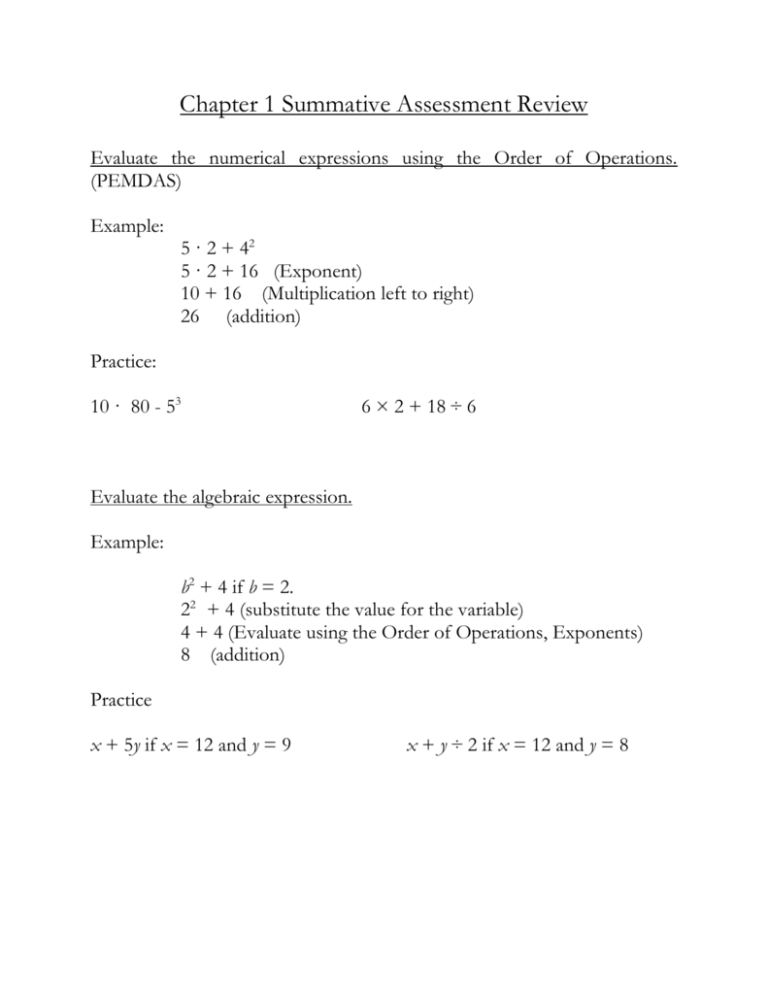
Chapter 1 Summative Assessment Review Evaluate the numerical expressions using the Order of Operations. (PEMDAS) Example: 5 · 2 + 42 5 · 2 + 16 (Exponent) 10 + 16 (Multiplication left to right) 26 (addition) Practice: 10 · 80 - 53 6 × 2 + 18 ÷ 6 Evaluate the algebraic expression. Example: b2 + 4 if b = 2. 22 + 4 (substitute the value for the variable) 4 + 4 (Evaluate using the Order of Operations, Exponents) 8 (addition) Practice x + 5y if x = 12 and y = 9 x + y ÷ 2 if x = 12 and y = 8 Solve the algebraic equation. Example: 9 + y = 11 y = 2 (I know that 9 + 2 = 11) Practice: m - 5 = 12 22s = 66 Convert the Units. Example: 52,000 mL = 52 L - Divide to get from smaller unit to bigger unit - 1,000 mL = 1 L - Divide 52,000 by 1,000 Practice: 2.2 g = ______mg 630 mL = ______L Geometric and Arithmetic Sequence Geometric Sequence– multiply the previous term by the same number Arithmetic Sequence – add the same number to each previous term Describe the sequence and find the next 3 terms: 1, 5, 9, 13, 17 … b) 8, 9, 11, 14… Exponents Exponential Form: 45 Product of the same factor: 4· 4· 4· 4· 4 Evaluate: 1,024 Practice: 23 71 33 Properties of Multiplication and Addition Commutative Property of Addition: 4 + 6 = 6 + 4 Multiplication: 9 · 3 = 3 · 9 Associative Property of Addition: (9 + 4) + 6 = 9 + (4+ 6) Multiplication: (8 · 9) · 4 = 8 · (9 · 4) Distributive Property: 6(2 + 3) = 6(2) + 6(3) Identify Property of Addition: 9 + 0 = 9 Multiplication: 7 · 1 = 7 Zero Property of Multiplication: 7 · 0 = 0 Practice: Use distributive property to write an equivalent expression: 7 · (3 + 4) Rewrite 5 + (6 + 7) using the Associative Property. (2 pts) Use the associative property to solve (9 · 2) · 50 using mental math. (2 pts) Scientific Notation The product of a number and a power of ten Example: Scientific Notation: 6.2 × 105 Standard Form: 620,000 Practice: 5.7 × 105 7.567 × 106 7,890,000 22,540,000
